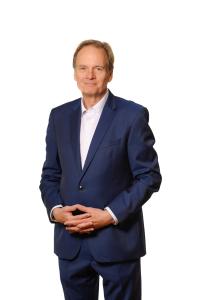Event reports
Africa has the largest growth of internet distribution in the world. With the increasing spread of the internet, social media has become more important in every-day life, in communication, the perception of social structures and also in politics. This development was most apparent in the developments of the “Arab Spring”, where social media activists were an important source of information for the outside world. In Sub-Saharan Africa, however, political bloggers remain in the shadow of food and fashion bloggers. For increased networking and for them to improve their blogs, KAS Media Africa hosted a two-day workshop with bloggers and social media activists from all over the continent in in Nairobi, Kenya.
The host country, Kenya was represented by three bloggers: Patrick Gathara, Daniel Ominde Okoth and Michael Onsando. The participants from neighboring Uganda were Ruth Aine, Shawn Mubiru and Masake Anthony.
Tanzania was represented by Maggid Mjengwa and Chambi Chachage. Jimmy Kainja and Bruce Chooma joined from Malawi and Zambia.
Three international experts and trainers were invited to conduct workshops:
Dave Duarte, South African marketing expert, entrepreneur and blogger, Martin Fuchs, Blogger and social media consultant from Germany and
Rhys Williams, British social media strategist and consultant.
Viral marketing, online advertising and analysis were components of one of Dave Duarte’s sessions, during which the participants had to apply his “Social Content Canvas” theory for planning a high-impact social media campaign for their own blogs.
The Blogger as a Brand: Martin Fuchs introduced ten rules to help bloggers establish themselves as a brand and stand out in the crowd. Networking and connecting with others, efficient use of social media and building up an own corporate identity to increase one's recognition value are all important steps in the process, but “content is king” remains the central element. Exclusive, frequently updated articles that make people think and question their views are the core elements of developing your blog into a brand.
Both Christian Echle and Rhys Williams hosted a session during which the participants discussed obstacles for bloggers in Sub-Saharan Africa. Everyone was very eager to share personal experience and impressions from their home countries. Part of the debate was whether or not experiences of African and European political bloggers are comparable. In Europe, criticism creates space for discussion and dialog, whereas in many African countries, a critical publication would more likely lead to the opposite.
The objective of the Social Media and Journalism Workshop was to assist participants in extending the reach of their blogs - both through marketing and content. Political blogs can play an important role in political dialog, going beyond the (partially state owned) mainstream-media. In many African countries, the government still has a firm grip on the media. Therefore, the presence of active and critical bloggers is all the more relevant. This issue was constantly addressed over the course of the conference. Despite their multiple nationalities, the bloggers noticed many parallels between their countries, leading to more solidarity among them.
Personal experiences were shared, issues and strategies discussed and compared to the individual situations. Newly gained information was spread via twitter. The degree of the participants' digital networks manifested itself through the online traffic on twitter.
A new Hashtag was created especially for the conference:
. After the first day, over 400 posts had reached more than 200 000 people. This dimension even impressed the trainers.
The idea of creating an international network of bloggers from Sub-Saharan Africa was well-received by the participants. It will mainly concentrate on sociopolitical issues in the region and exceed the range of topics covered by traditional media. Democratic values will be kept, transparency and diversity will be considered at all times. The participants agreed on the condition of submitting at least one blog post per month to the common website. The website will launch next year and is sure to fill a long existing gap in political news coverage about Africa. At the same time, trainings and workshops for the participating bloggers will continue in 2015.
Moritz Gilles












